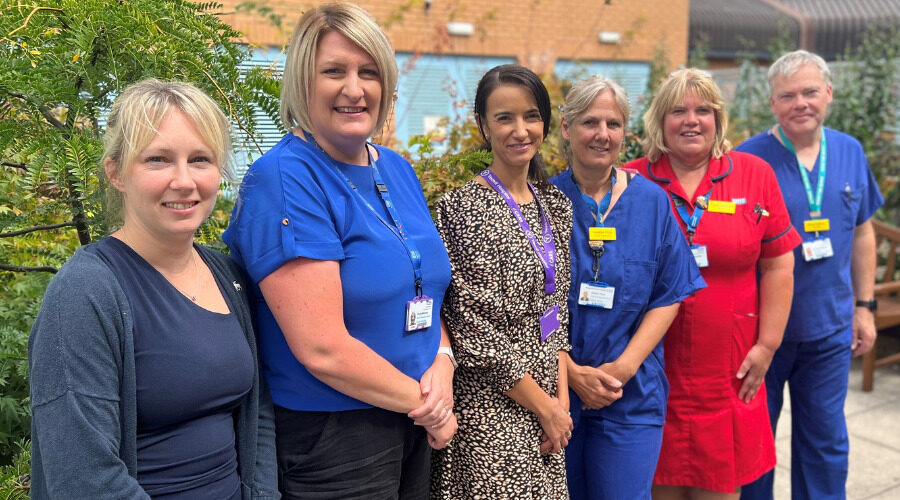
Spotlight
Somerset leads the way with new service to detect womb cancer
A brand new service that makes it easier to get checked for womb cancer has launched across Somerset this week in a UK first.
Womb cancer, also known as endometrial cancer, is one of the most common cancers that affects older women and those with a womb who’ve been through the menopause.
The main symptom of womb cancer is vaginal bleeding or unusual discharge after menopause. You’re classed as being post-menopausal if you aren’t using contraception or HRT, and you’ve not had a period for over 12 months.
This type of cancer is normally treated with a hysterectomy (surgery to remove the womb), with generally positive clinical outcomes, if found at an early stage.
Traditionally, you would contact your GP if you have concerns about vaginal bleeding or unusual discharge after the menopause, but the new service - a first of this kind in the UK - will mean that if you are not currently on HRT, or if you stopped taking HRT at least six weeks ago, you can now make a self-referral via our website, or by calling our gynaecology booking team.
Mr David Milliken, one of our consultant gynaecological oncologists, said:
“This new service is great news as it means people will be able to get a diagnosis for womb cancer much earlier than before. We estimate that we’ll see up to 50 patients a week at our clinics.
“We are seeing a year-on-year increase in referrals to our gynaecology cancer services for those who potentially have cancer – mainly those who’re experiencing post-menopausal bleeding.
“In fact, over the last year we’ve seen more than a 30% increase in the number of patients needing our care and treatment.
“We know that our GP colleagues tend to refer their patients to our service if they have post-menopausal bleeding symptoms anyway, so by allowing patients to access our service direct via a self-referral, we can avoid any unnecessary delays and get them an appointment much quicker. It also has the added bonus of freeing up our GP colleagues to see patients with other conditions.
“More than nine out of every ten patients referred to our service will not have a cancer. We hope this service will help to reassure the majority of people more quickly and help identify those who do need further treatment, sooner.
“The idea is that if anyone has symptoms and wants to be seen, they can either access our service through our website, or by calling us. Whichever route they take to reach us, they’ll get asked a number of questions to determine whether our service is right for them, or whether we need to direct them to their GP practice.
“A practitioner will provide an initial assessment at the clinic, which involves an ultrasound scan. Then, depending on the result of the ultrasound, there are a number of different options, from reassurance that there’s nothing wrong, to an examination, biopsy, or referral into hospital for treatment.
“Before we set about developing the service, we asked our patients how they’d like it to run through a series of surveys. The overwhelming feedback was that people would prefer to be seen at a community hospital closer to where they live than having to travel into the larger district general hospitals.
“We’ve therefore made it easier to get to an appointment by running the clinics across the whole of Somerset. Appointments are available at Yeovil District Hospital and the community hospitals in Bridgwater, Minehead, South Petherton, Wellington, West Mendip (Glastonbury) and Wincanton.
“Our advice to people who are experiencing post-menopausal bleeding is to make a self-referral as soon as possible by going to the Somerset FT website and filling out a referral form, or call our booking office on 01823 213567.”

